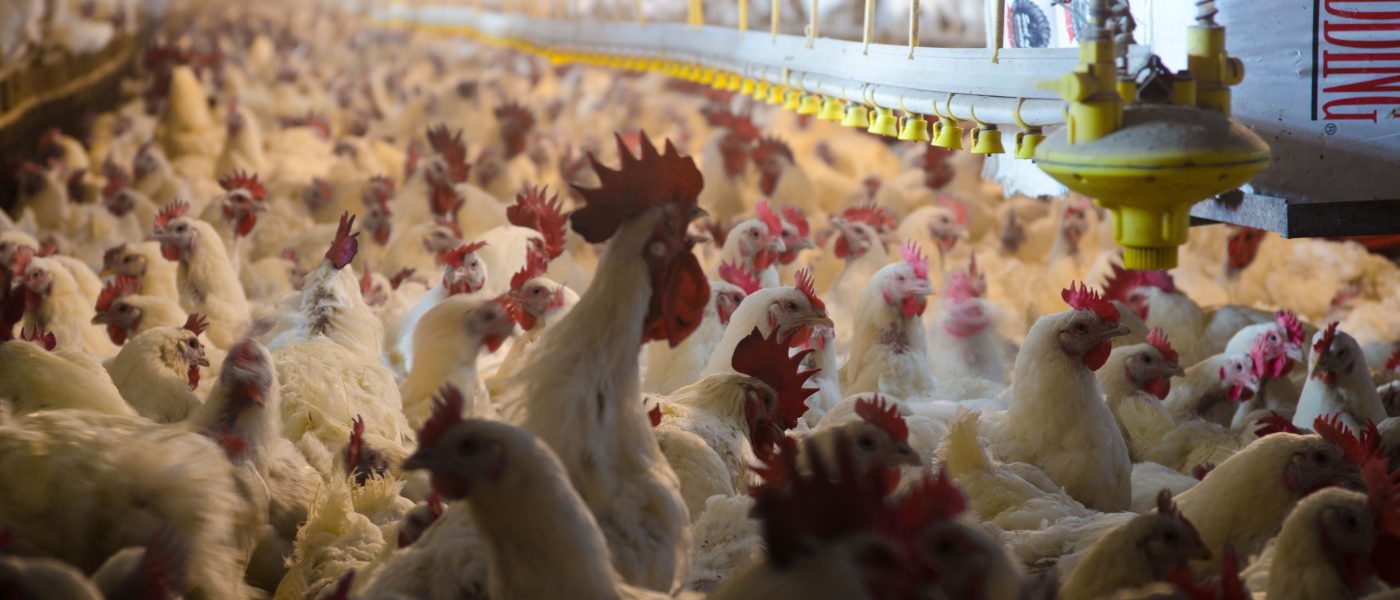Yesterday, the U.S. Department of Agriculture announced a proposed rule about “Transparency in Poultry Growing Contracts and Tournaments,” which will require poultry companies to provide key information to contract poultry producers (something producers were not previously granted). This action is part of a set of policy changes that Farm Aid and our partners have long been advocating for. We’re encouraged to see this first step to enforce the original intent of the Packers and Stockyards Act of 1921: To level the playing field between farmers and meatpackers.
This proposed rule relates to what is known as the “tournament system,” in which contract poultry growers are forced to compete against other growers for their pay. Though this new rule would not end the tournament system (which is what we would like to see), it would require that chicken companies provide more information to their contract growers. This includes giving contract growers information about the birds, feed and other inputs growers receive. Additionally, companies would share more detailed earnings projections before growers sign a contract with the company and take on considerable debt to make the investments necessary for poultry production.
Creating more transparency about this information is essential because all these inputs are supplied by the poultry company in a system that is “vertically integrated.” This means the poultry company owns the entire process, from producing the chicks and feed, to controlling every decision a grower makes in the grow-out process.
In other words, the factors that determine whether a grower is successful (and can pay off their farm debt) are entirely out of the grower’s control.
As Steve Etka, Policy Director for the Campaign for Contract Agriculture Reform (of which Farm Aid is a member), explains, “The tournament system is a deceptive, yet brilliant mechanism used by poultry companies to shift economic risks from themselves onto growers, all the while telling the growers the exact opposite. It’s no coincidence that in the most vertically integrated sector of agriculture, the poultry companies contract out one specific step of the process, and that’s actually raising the chickens. Farmers put up all of the capital costs to produce the chickens, with no control over the process, and a very low rate of return on their investments.”
The proposed “Transparency in Poultry Growing Contracts and Tournaments” rule will make some needed improvements to the poultry payment system, by:
- Requiring poultry companies to disclose the number of flocks and minimum flock stocking density that they will contractually guarantee annually, as well as any “sale of farm” policies.
- Requiring poultry companies, when finalizing a new contract, to disclose to prospective growers the income range, broken down by quintiles, of current growers in a prospective grower’s region.
- Requiring poultry companies to disclose information about the quality of the inputs they provided, and any relevant feed discrepancies, to growers, both when inputs are delivered and on settlement sheets and when growers receive their pay.
- Requiring poultry companies to provide each grower anonymized information about the quality of the inputs provided to every other grower in their “tournament group” on settlement sheets.
- Requiring poultry companies to disclose how their tournament system formulas account for input quality variability.
- Requiring poultry company CEOs to sign agreements that require the implementation of internal controls frameworks necessary to provide accurate disclosures and compliance with USDA audits of disclosed data.
Aaron Johnson, the Challenging Corporate Power program manager for RAFI-USA, Farm Aid’s partner and a leading organization on issues related to poultry, says, “We’ve long advocated for the USDA to rule that any tournament system or formula payment arrangement that bases grower compensation on factors outside their control to be an unfair practice. While this rule stops short of that standard, if finalized, it takes many important steps toward giving contract poultry growers the information they need to better advocate for themselves, while significantly increasing transparency in the industry.”
This rule keeps the unfair tournament system in place; however, it is reassuring that USDA also announced that it will seek input from stakeholders to determine whether the current tournament-style system in poultry could be modernized to create a fairer marketplace. The answer is a resounding YES! This current system must change. Stay tuned for ways that you can take action to help create a more transparent and fair market for poultry producers.
Further Reading
The people who grow our food deserve to earn a fair living. But that’s out of reach for poultry farmers who work in an industry where the power of a few giant corporations leaves them trapped in a rigged marketplace, vulnerable to abusive business practices. Read “Big Chicken: Poultry Growers Fight for Fairness” to learn more.



